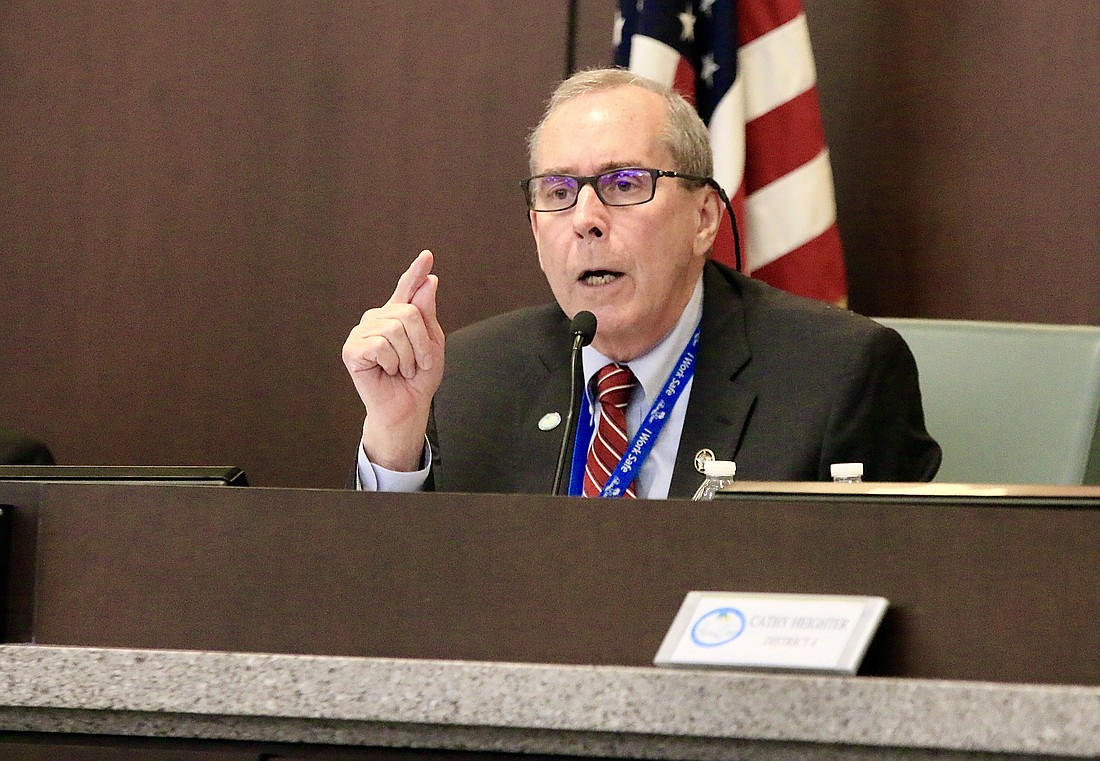- December 13, 2025

The Palm Coast City Council preliminarily approved raising the city’s water and wastewater impact fees, but not increasing monthly rates, at its Feb. 20 meeting.
The council voted 4-1, with Mayor David Alfin dissenting, to increase the impact fees by 8.93% for four years for water and 12.49% for two years for wastewater, as proposed in a utility rate study conducted by Stantec Consulting Services. Council woman Theresa Carli Pontieri proposed the motion approving the impact fee increases but holding off on monthly rate increases until the city can gather more information.
The city will need to pass another vote to increase the impact fees, and re-advertise any future considerations to raise the monthly utility rates. Alfin said he wanted to see more information about what services will be reduced or in danger before any increase is implemented.
“We don't always have that luxury to polish everything today so it's more pristine in the future,” Alfin said.
Originally, the rate study included three staggered 6% increases to residents over two years, based on the city's projected capital and operation expenses increases over the next several years.
Utility Director Stephen Flanagan and Eric Grau from Stantec said the increases — to both impact fees and monthly rates — are necessary for the maintenance of the city's water and wastewater systems.
Palm Coast already implements an annual increase to its water-wastewater rates, equal to that of that year’s United States’ Consumer Price Index, which measures the average change in prices for urban consumers, according to the Bureau of Labor Statistics. But Grau said the rate study shows the need will far outpace the CPI if no additional increase is implemented.
According to the rate study, Grau said, the utility department’s funds will dip below its standard 2.5-month operational reserve by 2025 and exhaust the reserves by 2027.
Alfin, Vice Mayor Ed Danko and council member Cathy Heighter were not convinced of the immediate necessity of increasing water and wastewater rates, suggesting the projections can change from year to year. Heighter said it might be better to hold off on increasing monthly rates for a year.
“I'm kind of feeling like we're being made to make a decision on presumptions of what may or may not happen in the future,” Heighter said.
Council members Nick Klufas and Pontieri did not doubt the data presented to the council that an increase is necessary, but instead wanted to look at ways to mitigate the costs.
The way I see it, we need to support our system. The worst thing that could ever possibly happen is that we have a compromise of our water quality."
— NICK KLUFAS, Palm Coast council member
"The way I see it, we need to support our system," Klufas said. "The worst thing that could ever possibly happen is that we have a compromise of our water quality."
Impact fees — also known as Capital Facility Fees — can only be used for capacity and growth projects, not the day-to-day operational costs.
"All else being equal, raising rates later, will require higher rates," Grau said.
Flanagan told the council that without a doubt, costs are going to increase for operations and capacity.
“At the end of the day, we know, for a fact, they would increase,” Flanagan said. “Our capital is not funded. Without these rate increases, we don’t have the money to expand the facilities.”
Many residents in attendance protested a monthly rate increase. Resident Doris Draeger said the city should have been budgeting the increases, instead of implementing them all at once.
"You need to think about what you're doing to these citizens who pay your wages," Draeger said.
You need to think about what you're doing to these citizens who pay your wages."
— DORIS DRAEGER, Palm Coast resident
Annamaria Long, executive officer of Flagler Homebuilder’s Association, said she attended to initially give her support to increasing the impact fees, but needed to review the study conducted first. Long said she requested the study two weeks prior but the clerk did not have the study to send.
"Until I see that, I can't just blindly offer our support," Long said. "At the same time, it's not often that we are saying, hey, we support an impact fee. In this case, we want to make sure we are paying our fair share."